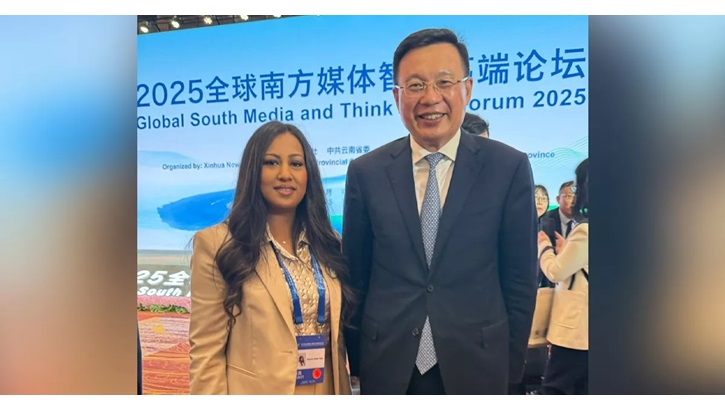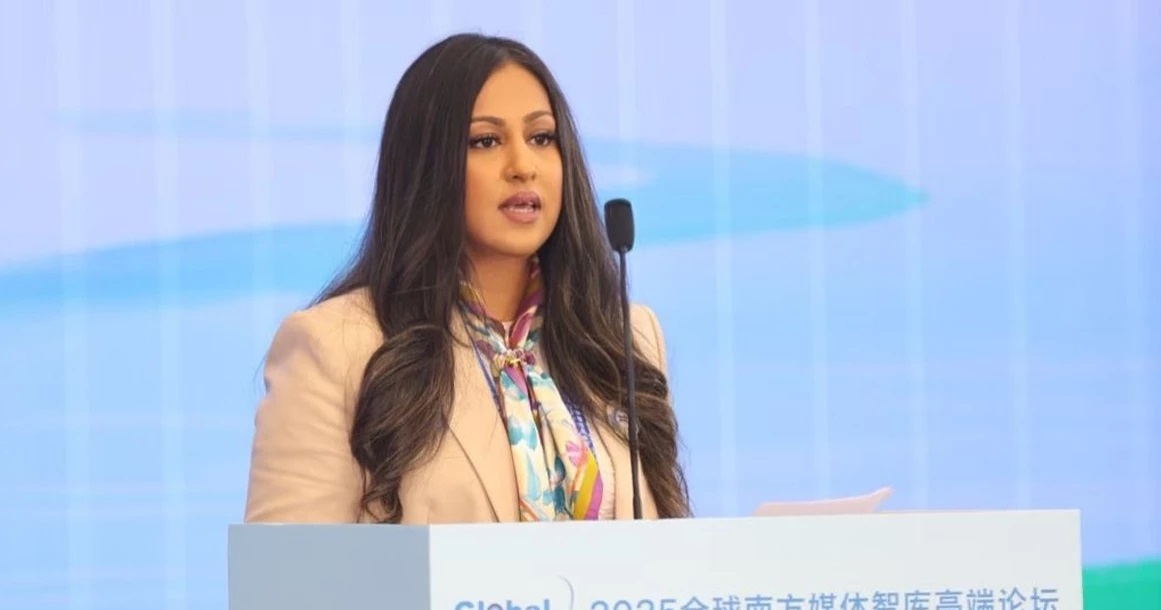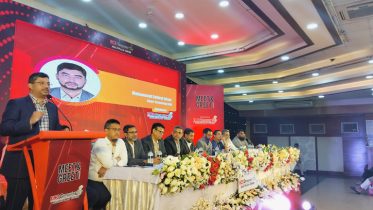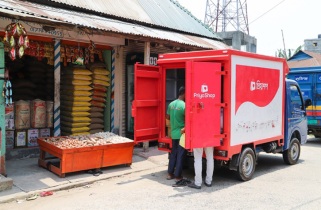
Photo Collected
Highlighting the need to invest in local-language AI models, UNB Executive Editor Nahar Khan on Sunday said artificial intelligence can be a powerful tool for progress—provided it is wielded with integrity, inclusivity, and foresight.
“The future of news in the Global South will not be written by algorithms alone. It will be written by us, by our choices, by our courage, and by our commitment to truth,” she told participants at the Global South Media and Think Tank Forum 2025, held in Kunming under the theme “The Rise of the Global South: Economic Development and Cultural Confidence.”
Nahar, also the Executive Director of the Cosmos Foundation, stressed that the Global South has long been spoken about, but too rarely spoken for. “AI offers us a chance to change that—but only if we act collectively. Let us ensure that our audiences, our languages, and our stories are not left behind in this transformation,” she said.
The five-day forum, co-hosted by Xinhua News Agency, the CPC Yunnan Provincial Committee, and the People’s Government of Yunnan Province, brought together more than 500 journalists, scholars, policymakers, and entrepreneurs from 110 countries and organizations.
The Challenge of Voice and Trust
In a rapidly evolving media ecosystem, Nahar emphasized that trust remains the foundation of journalism. “News is only as strong as the credibility it carries, and in the age of AI, that trust is under both great pressure and great possibility,” she said.
She pointed out that younger generations across the Global South are increasingly bypassing traditional media, consuming news through short videos, digital platforms, and AI-driven feeds. “This reality is not a threat we can ignore—it is a call to adapt, to innovate, and to reclaim our space in the information ecosystem,” she noted.
AI, if used responsibly, can empower newsrooms, she argued. From transcribing interviews in seconds to delivering life-saving early warnings in disaster-prone areas, the technology can transform journalism. But she cautioned that AI is not neutral, being heavily skewed toward English and Global North contexts, leaving Global South narratives underrepresented.
“If we do not invest in local-language AI models, our audiences will continue to consume information through systems that do not fully reflect them,” she warned.
At United News of Bangladesh (UNB), she added, efforts are underway to explore AI tools that support—not replace—journalists. “Our goal is not efficiency alone, but the preservation of voice—ensuring that Bangladeshi stories, told in Bangla, are part of the global conversation.”
 Bangladesh as a Case Study
Bangladesh as a Case Study
Using Bangladesh as an example of digital transformation, Nahar highlighted the country’s rapid connectivity growth. With 98.1% mobile penetration and 72.8% smartphone adoption in 2025, she said nearly one-third of Bangladeshis now have a digital identity.
The tech sector, with 4,500 software firms and 750,000 ICT professionals, is projected to reach $5 billion by the end of 2025. “This digital transformation demonstrates both economic development and cultural confidence. It shows how young people, women, rural communities, and entrepreneurs are redefining Bangladesh’s role in the global economy,” she said.
A Collective Future for the Global South
Nahar stressed that the Global South is not just a geographical term but a political, cultural, and economic construct shaped by shared histories and rising influence.
“As a demographic powerhouse, holding two-thirds of the world’s youth, and as hubs of innovation and entrepreneurship, the Global South is powering global growth while reshaping the rules of the global economy,” she said.
She further pointed to the region’s cultural wealth and natural resources, from the Amazon to the Sundarbans, as assets that, if harnessed responsibly, can place the Global South at the forefront of sustainable development.
Concluding her remarks, Nahar called for unity. “Today, the Global South signals a future where our collective strength and unity can help shape a more just and multipolar world,” she said, thanking Xinhua and Yunnan authorities for convening the landmark forum.
ইউ

.png)







